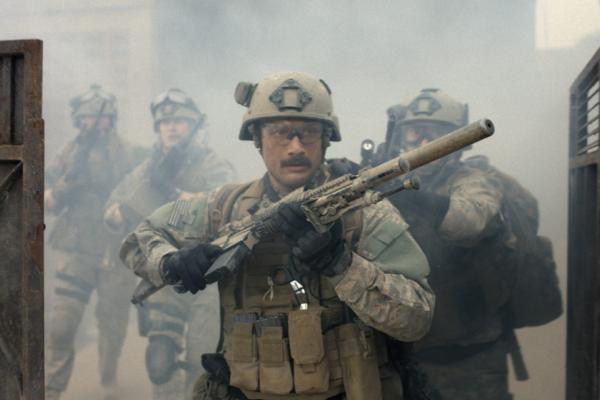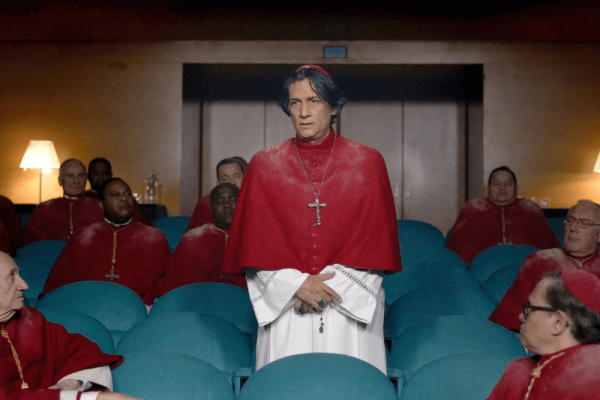It’s jarring to feel yourself rooting against a peace treaty, as I did while watching The Darkest Hour, which opens in theaters Friday. The film covers a few weeks in May 1940 when Neville Chamberlain stepped down as the British prime minister and Winston Churchill replaced him. As the freshly minted prime minister, Churchill must figure out whether to make peace with Adolf Hitler and hope for independence or to stand up to tyranny, even if the entire island goes down trying.
Viewers will, of course, have the benefit of hindsight while watching these politicians muddle through the question of diplomacy or defense. In one early scene, Churchill (played in unusually endearing fashion by Gary Oldman) receives a call from the French ambassador, informing him that Germany has invaded Belgium and Holland, and that France is on its way to surrender. We know that these invasions will result in the fall and occupation of each of these countries, and that unspeakable horrors await their citizens. We know where Hitler plans to go with his conquest, and that millions of Europeans face a death sentence through unimaginably evil means.
And so the film makes villains out of Neville Chamberlain (Ronald Pickup) and his ally, Viscount Halifax (Stephane Dillane), and their attempts to continue to push for a peace, mediated by Italy’s Benito Mussolini.
This is unfortunate, because any student of history knows that the United Kingdom suffered enormous losses during World War I. As Halifax entreats Churchill to consider a diplomatic solution, he says, “What is the end? There is nothing patriotic in ‘death-or-glory.’”
It is understandable that leaders would want to exhaust all diplomatic means before entering the war. That’s not villainy. It is common sense.
And yet, those of us in 2017 know that Hitler was an uncommon enemy who oversaw the systemization of evil in ways we still cannot fully understand.
The Darkest Hour raises uncomfortable questions about the nature of war and what justifies military action. We see the sacrifice of 4,000 British soldiers at Calais in order to rescue the 300,000 British Expeditionary Forces at Dunkirk. It is an agonizing moment, a devastating sacrifice. In May of 1940, none of those leaders and soldiers had any idea that those casualties were not a complete waste of human life, that were it not for Britain’s refusal to surrender and agree to terms with Hitler that world events could have taken an even darker turn.
Hindsight and history make this easy. World War II is largely considered “just” according to the Just War theory put forth by St. Thomas Aquinas, in that it was waged between two properly instituted authorities (Great Britain and Germany); it occurred for a good beyond a country’s national interest or for national gain (in this case, opposing fascism and standing up to a tyrant); and that the central motive should be peace (if Hitler wasn’t stopped there would likely not be any real peace, as he’d broken multiple treaties in the past).
Still, no matter how “just” a war might be, it does our leaders well to consider the weight of these decisions, and to count the cost faced by their citizens. The Darkest Hour shows leaders wrestling with deep moral questions while also wrestling with their own ambition. Though public opinion seems in favor of war, Churchill knows that he can be unseated through a “no confidence” vote if Chamberlain and Halifax do not get the peace treaty they seek. We know how the story ends, but it would help us to keep in mind the global consequences that would result had Churchill’s ambition to hold onto power at whatever cost gotten the best of him.
Despite these philosophical questions, The Darkest Hour is an entertaining film, especially if you enjoy histories and geopolitical intrigue. The film deftly takes viewers through these fraught and tense days — and at its end, will leave you ready to head down a Wikipedia hole of World War II history.
Got something to say about what you're reading? We value your feedback!







